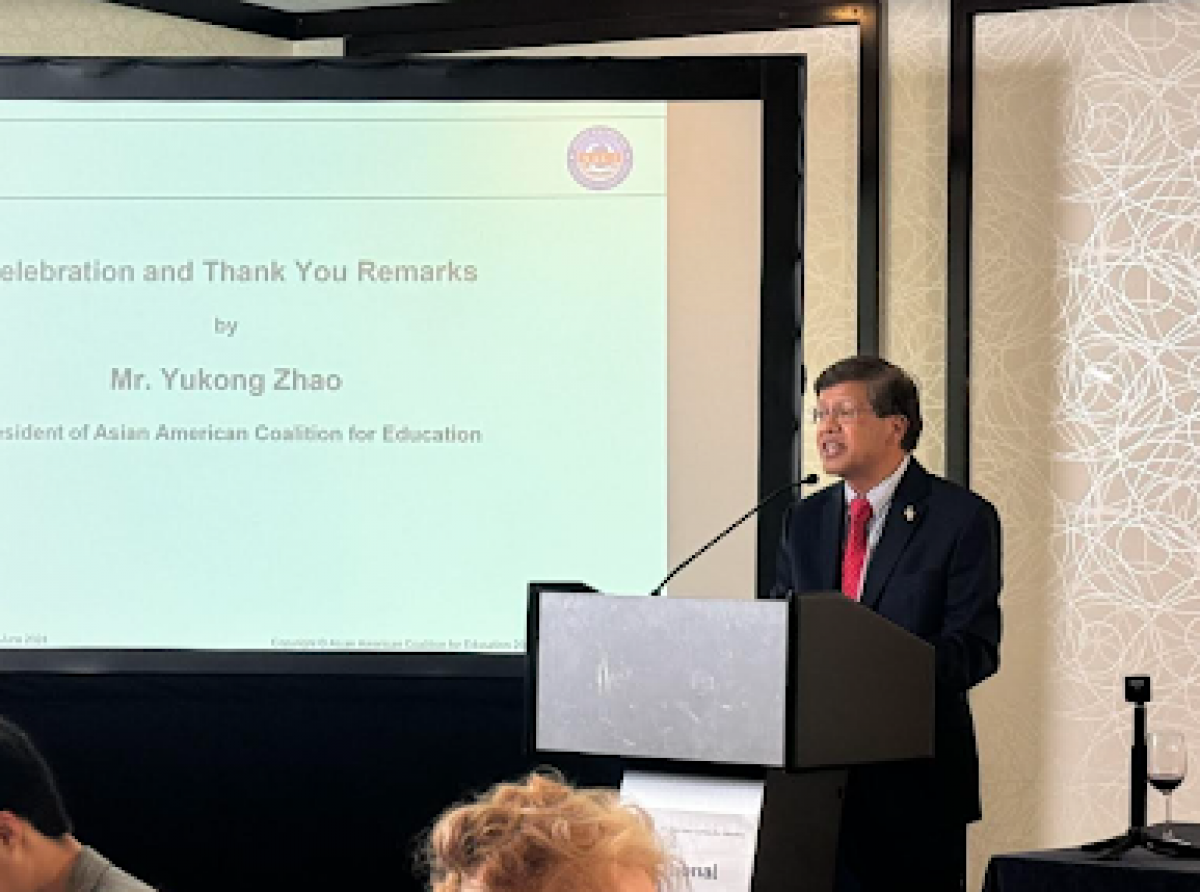[中文版本]
On June 29th, 2024, the Asian American Coalition for Education (AACE) hosted its 2nd National Conference for Equal Education Rights to celebrate the anniversary of the Supreme Court ruling on Students for Fair Admissions v. Harvard which ended the college admissions practice of affirmative action: the evaluation of race as a factor in the admissions process to improve the accepted student class's diversity. Among the various speaker presentations and panel discussions, the conference focused on promoting equal education rights and meritocracy.
In June 2023, the Supreme Court ruled that the affirmative action admissions programs at Harvard University and the University of North Carolina were unconstitutional, violating the equal protection clause of the 14th Amendment.
AACE Founder and President Yukong Zhao considers this lawsuit to be a major victory in the movement for equal education rights. However, there is much more that he hopes to achieve. One of his next goals is to bring attention to standardized testing, which can be used to measure students’ academic qualifications. Many colleges are making standardized tests optional but he believes that “standardized testing should not be the only criterion, but should be one major criterion because it is standard for everybody and objective.”
Mike Gonzalez, a senior fellow at the Heritage Foundation, believes that supervision of colleges to enforce the Supreme Court's ruling is a critical task following the decision. In particular, he wants to ensure that colleges don't "cheat” by using another similar criterion in place of race to achieve the same effect.
While achieving diversity in the classroom is an admirable goal, Zhao does not believe in diversity at the cost of sacrificing equal education rights. While some argue that the Supreme Court ruling will make it difficult for elite colleges to admit more Black and Hispanic students, Zhao disagrees. “We passionately support improving the education for Black and Hispanic students," he said. "But we need to do it in the right way, the constitutional way. Doing it the wrong way will jeopardize the meritocracy, and will jeopardize equal opportunities. Using discrimination, that is the wrong way.”
Zhao affirms that the proper way to fix the K-12 education system isn't to use affirmative action at the very end of the process to influence college admissions but rather to fix the root causes. In particular, he and Gonzalez both emphasized the importance of a stable, supportive familial environment on students’ education and future. For the young people who sat in the conference, Gonzalez advised them to “follow the success sequence: graduate first, get a job, get married, and then have kids.”
Gonzalez also disliked the idea of using numeric proportions as a standard for diversity. “We shouldn’t expect every part of American society to reflect the underneath makeup population," he said. Instead, he believes diversity should flow from the process of pursuing merit.
(Contributed by the CAPA-MC Junior Reporter Club)








